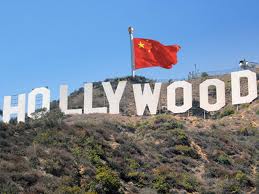The relationship between Hollywood and China has been the focus of much recent media attention, as American studios show increasingly willingness to adjust a film’s content or casting in order to placate Chinese censors. Some of the choices appear to be aimed at appeasing China’s political sensitivities, while others are more subtle business calculations. In Vanity Fair, Joanna Robinson looks at some recent examples of how the prospect of Chinese ticket sales may have influenced even minor editorial decisions in recent Hollywood movies:
CAPTAIN AMERICA: CIVIL WAR — MAY
An incredibly prevalent product placement that may have escaped most people’s notice made it into Marvel’s latest superhero team-up. Tony Stark (and a few other Avengers) switched from LG phones to a brand called Vivo. (See this swanky commercial spot the company landed.) If you haven’t heard of it, that’s because Vivo phones aren’t available stateside—and they’re certainly not something a billionaire tech wiz would use. As Sascha Segan of PC Magazine explained to Geek.com:Vivo is a cheap Chinese phone brand, which does not sell any products in the U.S. It’s part of a larger company called BBK, which has three brands, Oppo, Vivo, and OnePlus. Oppo is the high-end brand, Vivo is the lower-end brand, and OnePlus is the geeky-culty brand.
Even if Tony started using that phone just for fun and somehow convinced the other Avengers to follow suit, Segan says there’s zero chance the American government would let Tony—who is very much a collaborator in this movie—“use phones from an off-brand Chinese phone manufacturer, especially after the huge controversies around Huawei and ZTE and whether their phones are full of backdoors for the Chinese government.” No one ever said product placements were graceful, but they don’t usually come with quite so many plot holes.
Did it help? Did it ever. [Source]
For more on the deepening relationship between China and Hollywood, read CDT’s interview with China film scholar Michael Berry.








